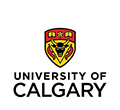Candidacy
Candidacy must be completed within 28 months (for MSc to PhD transfers) or 24 months (direct entry PhD) from the program start date. Admission to candidacy is an acknowledgement that a student is fully prepared to devote their full attention to the thesis research.
To enter into candidacy, students must: (1) successfully complete all required courses, (2) attend Research Integrity Day (3) have their thesis proposal approved at a proposal evaluation meeting, and (4) successfully complete a Field of Study oral examination.
Students who do not pass their candidacy requirements by the twenty-eighth month of their program may be required to withdraw from the program.
Specific details of the examination format and other candidacy requirements can be found at: wcm.ucalgary.ca/gse/files/gse/csm-candidacy-examination-process-effective-september-1-2015.pdf.
Thesis Examination
All students in thesis-based programs (MSc and PhD) must successfully pass the Final Thesis Oral Examination. The examination will consist of a public seminar followed by an open oral examination. In addition to FGS regulations for Thesis Examinations, the program has the following requirements:
Scheduling of the Examination
All members of the Supervisory Committee must have reviewed the student’s research, including a relevant written sample of the materials related to the thesis, before an examination can be scheduled.
Composition of the Committee
The Internal Examiner may be internal to the home program.
 Program Descriptions
Program Descriptions  Medicine Programs
Medicine Programs  Medicine, Biochemistry and Molecular Biology MDBC
Medicine, Biochemistry and Molecular Biology MDBC
